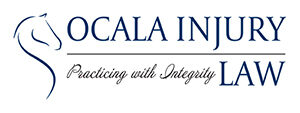Dealing with medical bills and insurance can be stressful. Here’s a quick guide to help you navigate your rights and avoid costly mistakes:
- Check Your Policy: Understand terms like deductible, copayment, and out-of-pocket maximum to estimate your costs.
- Spot Billing Errors: Request an itemized bill, compare it with your Explanation of Benefits (EOB), and look for duplicate charges or incorrect fees.
- Know Why Claims Get Denied: Common reasons include policy exclusions, timing of treatment, or lack of evidence. Always document your care and review your policy.
- Use Legal Protections: The No Surprises Act protects against unexpected out-of-network charges, and the Affordable Care Act (ACA) ensures appeal rights for denied claims.
- Negotiate Costs: Ask for discounts, payment plans, or financial assistance from your provider. Tools like Healthcare Bluebook can help you verify fair pricing.
- Appeal Denied Claims: File appeals promptly with all supporting documents. If necessary, seek legal help to challenge unfair practices.
Quick Tip: If your bill exceeds a good faith estimate by $400 or more, you can dispute it for a $25 fee, which may be refunded if resolved in your favor.
Understanding these steps can save you money and protect your rights when dealing with medical bills and insurance issues.
Reading Your Insurance Policy
Understanding your insurance policy is crucial for managing medical expenses. By reviewing the key components, you can avoid unexpected bills and better plan for healthcare costs.
Coverage Limits and Basic Terms
Your policy includes terms that directly affect your out-of-pocket costs. Here are the key ones to know:
- Deductible: The amount you pay each year before your insurance starts covering costs.
- Copayment: A fixed fee (e.g., $20) you pay for specific services, like a doctor’s visit.
- Coinsurance: The percentage of costs you pay after meeting your deductible.
- Out-of-pocket maximum: The most you’ll pay in a year, including your deductible, copayments, and coinsurance.
For instance, if your deductible is $1,000 and your coinsurance is 20%, you’ll cover the first $1,000 of medical expenses. After that, you’ll pay 20% of additional costs until you hit your out-of-pocket maximum.
Network Provider Differences
The cost of medical care can vary depending on whether you see an in-network or out-of-network provider.
| Provider Type | Description | Cost Impact |
|---|---|---|
| In-Network | Providers contracted with your insurance | Lower, negotiated rates |
| Out-of-Network | Providers without an insurance contract | Higher rates, possible extra fees |
| Emergency Services | Any provider, regardless of network | Protected from surprise billing |
"Generally, if you get care with an in-network provider or facility, it will cost you less than if you get care with an out-of-network provider or facility."
Insurance Payment Terms
Knowing how payments work can help you avoid surprises. The University of Florida Student Health Care Center highlights the importance of understanding your policy:
"It is extremely advantageous to know what your policy does and does not cover in advance of any illness or injury so you can know what charges you will responsible for."
Here are some payment-related terms to keep in mind:
- Allowed Amount: The maximum your insurance will pay for a service.
- Balance Billing: When a provider charges you the difference between their fee and what your insurance covers.
- Good Faith Estimate (GFE): A cost estimate required for uninsured patients.
- Explanation of Benefits (EOB): A statement detailing what services were covered and what you owe.
To confirm these details or ask questions, call the toll-free number listed on your insurance card.
Medical Bill and Insurance Problems
Medical bills and disputed claims can put your finances at risk. Understanding these issues can help you protect your rights and manage costs effectively.
Why Claims Get Denied
Insurance companies often deny claims for specific reasons. Knowing these reasons can help you prepare and potentially avoid or challenge denials. Here are some common causes:
| Reason | Description | What You Can Do |
|---|---|---|
| Policy Exclusions | Certain treatments aren’t covered by your plan | Check your policy details before getting treatment |
| Treatment Timing | Delays in care after an injury | Get medical attention as soon as possible after an accident |
| Coverage Status | Policy wasn’t active when treatment occurred | Confirm your coverage is valid before seeking care |
| Lack of Evidence | Insufficient proof linking the injury to the accident | Provide detailed documentation to support your claim |
In addition to denials, hidden fees may increase your medical expenses.
Hidden Medical Costs
Unexpected charges can add up quickly. While the No Surprises Act offers some protection against out-of-network costs, staying alert is still important.
Here’s how to spot and address hidden charges:
- Examine your bills for errors, such as:
- Duplicate charges for the same service
- Incorrect fees for medications
- Unapproved charges for routine items
- Costs for procedures that were canceled
- Compare your bill with your Explanation of Benefits (EOB). Make sure the services and charges match what your insurance company lists.
- Request an itemized bill if any charges seem unclear or excessive.
Insurance Coverage Gaps
Even if your bills are accurate, gaps in coverage can leave you with high out-of-pocket expenses. Here are some strategies to consider:
| Strategy | How It Helps | When to Consider |
|---|---|---|
| Gap Insurance | Covers deductibles and copays | Ideal for high-deductible plans |
| Payment Plans | Lets you pay over time | Useful for large medical bills |
| Financial Assistance | Reduces costs based on income | Available for those who qualify |
For expenses not covered by insurance, you can:
- Use tools like Healthcare Bluebook or FAIR Health Consumer to check average costs and ensure fair pricing.
- Negotiate directly with your healthcare provider for lower fees.
- Look into hospital financial assistance programs.
- Work with a medical billing advocate for complicated cases.
If your bill exceeds the good faith estimate by $400 or more, you may have the right to dispute it. Typically, the process involves a $25 administrative fee, which could be deducted from your final bill if the dispute is resolved in your favor.
Understanding these issues is key to protecting your finances and navigating the healthcare system with confidence.
Patient Legal Rights
When navigating medical bills and insurance claims, these legal rights can help you challenge unfair practices and support the strategies mentioned earlier.
Getting Detailed Medical Bills
You are entitled to clear, itemized medical bills and explanations of charges:
| Right | What It Means | What to Do |
|---|---|---|
| Itemized Bill Request | Breakdown of all charges | Contact the billing department in writing |
| Charge Explanation | Description of services | Request CPT codes and descriptions |
| Medical Records Access | Documentation of services | Request records for verification |
Medical bills can have errors. Compare them with your records, and if you find any mistakes, document them carefully. Reach out to your provider and insurer to address the discrepancies.
Insurance Denial Appeals
Your rights during insurance claim denials are backed by law:
"The claimant really needs to be able to see what the relevant evidence is so that they can respond to it." – Tim Hauser, Deputy Assistant Secretary with the Department of Labor
These rights include access to your complete claim file, a written explanation for denials, fair appeal options, and independent reviews.
In a notable case from July 2023, Cigna initially denied access to speech therapy claim records. After an investigation, they were required to provide the records and reimburse the denied coverage. These appeal rights are part of the federal protections established under the ACA.
ACA Patient Protections
The Affordable Care Act (ACA) provides key safeguards for patients:
| Protection | What It Provides | Why It Matters |
|---|---|---|
| Appeals Process | Right to challenge denials | Multiple levels of appeal |
| Coverage Information | Clear benefit details | Helps you make informed decisions |
| Pre-existing Conditions | Guaranteed coverage | Ensures access to necessary care |
The ACA also requires insurers to offer a standardized Summary of Benefits and Coverage. It protects your right to choose your doctors and prohibits lifetime care limits.
If your insurer violates these rights:
- File a complaint with your state insurance department.
- Contact your health plan’s grievance department.
- Seek help from Consumer Support Programs.
- Keep records of all communications.
Insurers are obligated to provide claim files upon request. For example, when Anthem denied Pamela Tsigdinos access to her claim records, she had the right to report the violation to regulatory authorities.
sbb-itb-68ed374
Fixing Medical Bill Problems
Finding Bill Errors
Medical bills often contain costly mistakes. Start by requesting a detailed, itemized bill that lists every service, medication, and supply, along with their billing codes.
| Common Billing Errors | How to Identify | Action Steps |
|---|---|---|
| Double Billing | Same service listed multiple times on same date | Compare with your medical records |
| Incorrect Codes | Services don’t match what you actually received | Look up CPT codes online |
| Wrong Personal Info | Insurance or patient details are incorrect | Review all demographic data |
| Undocumented Services | Charges for services not in your medical records | Request and review your records |
According to a 2021 LendingTree survey, 92% of patients who reviewed their bills for accuracy were able to lower their medical costs. Compare each charge with your Explanation of Benefits (EOB) to spot any discrepancies. Once you find errors, contact your provider to address them.
Talking to Medical Providers
After reviewing your bill, reach out to your healthcare provider to correct errors or negotiate costs. Contact the billing department with all your documented evidence.
"Knowledge is power. When you know the fair price, you’re in a better position to negotiate." – Latham, healthcare expert
Here are some tips to improve your chances of successful negotiations:
- Keep a record of all conversations, including the date, time, and the name of the representative you spoke with.
- Ask for discounts if you’re able to pay the bill immediately.
- Inquire about financial assistance programs, especially if you’re dealing with a non-profit hospital.
Filing Insurance Appeals
If your insurance claim is denied or underpaid, you can take steps to appeal effectively:
| Appeal Stage | Required Documents | Timeline |
|---|---|---|
| Internal Review | EOB, Medical Records, Appeal Letter, Name/ID on all pages | File within plan deadlines |
| Supporting Evidence | Bills, Receipts, Doctor Notes | Include with initial appeal |
| External Review | All previous documentation | After internal appeal denial |
Send all appeal materials via certified mail to ensure tracking. While your appeal is being processed, providers are not allowed to send your bill to collections or add late fees.
If a provider charges $400 or more above their good faith estimate for non-insured services, you can file a formal dispute for a $25 administrative fee. If your dispute is successful, the fee will be deducted from your final bill.
Getting Legal Help
When billing errors or insurance disputes persist despite your best efforts, seeking legal assistance may become necessary.
Signs You Need a Lawyer
You should consider consulting a lawyer if you’re dealing with claim denials, threats from collections, or complicated insurance matters.
| Warning Sign | Impact | How Legal Help Assists |
|---|---|---|
| Insurance Claim Denial | Loss of coverage for needed treatments | A lawyer can challenge denials and clarify coverage. |
| Collection Threats | Pressure to pay from medical providers | Legal professionals can stop aggressive collection tactics. |
| Complex Insurance Issues | Trouble handling multiple insurers or gaps | Attorneys can guide you through overlapping policies. |
| Future Medical Needs | Long-term treatment requirements | A lawyer can secure compensation for ongoing care. |
Insurance companies prioritize their bottom line. Legal representation ensures your interests are safeguarded.
What Lawyers Do
Building on earlier strategies, personal injury lawyers provide additional support to protect your rights:
-
Insurance Negotiations
Lawyers prepare detailed settlement demands that outline your injuries and the compensation you deserve. Their negotiation skills can significantly strengthen your claim. -
Medical Bill Management
Attorneys use their authority to negotiate reduced bills and prevent collection actions, offering a level of expertise that goes beyond self-advocacy. -
Legal Action
If an insurer refuses to pay a valid claim, a lawyer can file a lawsuit and represent you in court.
These services amplify your efforts by adding professional legal leverage.
Lawyer Payment Terms
Most personal injury lawyers operate on a contingency fee basis, meaning you don’t have to pay anything upfront. Here’s a breakdown of typical fees in Florida:
| Settlement Timing | Up to $1M | $1M – $2M | Over $2M |
|---|---|---|---|
| Before Answer Filed | 33.33% | 30% | 20% |
| After Answer Filed | 40% | 30% | 20% |
| Liability Admitted | 33.33% | 20% | 15% |
If your case requires an appeal or additional legal action to collect a judgment, an extra 5% may apply. With contingency fees, you only pay if you win, with the fee taken as a percentage of your award. Make sure to confirm any additional costs upfront.
Conclusion
If you’ve experienced a personal injury, it’s crucial to understand your rights to protect your finances. With unpaid bills appearing on 43 million credit reports and impacting nearly one in five households, taking action is essential. Here’s a quick rundown of steps to help you safeguard your rights and manage costs:
| Step | Benefit | Legal Support |
|---|---|---|
| Match charges to estimates | Avoids unexpected fees | No Surprises Act |
| Check bills for accuracy | Catches errors and overcharges | Right to itemized bills |
| Apply for financial aid | Eases financial strain | Financial aid requirements |
| Dispute collection issues | Halts invalid collection efforts | Fair Debt Collection Practices |
"The No Surprises Act protects you from unexpected out-of-network medical bills for emergency room visits." – Centers for Medicare & Medicaid Services
If you face billing challenges, address them quickly using these straightforward, legally supported steps. Dispute any questionable charges right away, and for concerns related to the No Surprises Act, reach out to the Centers for Medicare & Medicaid Services. Keep detailed records of all communications with healthcare providers and insurers to strengthen your case when resolving billing disputes.




